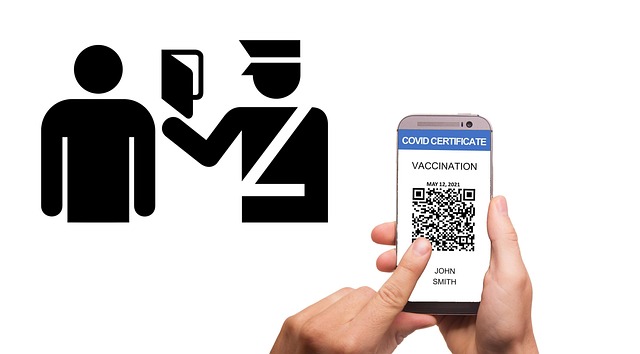Gas safety certificates are essential for property owners and managers to ensure gas appliances meet standards, minimizing risks. They're legally required, protect against liability, and offer peace of mind. Regular assessments identify issues early, saving costs. Accessible options from professional engineers with flexible booking are available. Assessments thoroughly inspect properties against contemporary gas safety standards, focusing on leaks, proper installations, and regulatory compliance. Understanding local guidelines and preparing well enhances passing chances and contributes to safer living environments. Valid certificates offer significant benefits for property owners, protecting investments, preventing accidents, reducing liabilities, and fostering trust with tenants.
Ensure your book’s gas safety with a comprehensive assessment. This guide navigates the essential steps towards achieving and understanding your gas safety certificate requirements. From preparing for the assessment to avoiding common mistakes, we provide a clear roadmap. Learn what to expect during the process and discover the countless benefits of obtaining this vital certification. Stay safe and informed—dive into our detailed overview on book gas safety certificate assessment.
- Understanding Gas Safety Certificate Requirements
- Preparing for Your Book Gas Safety Assessment
- The Assessment Process: What to Expect
- Common Mistakes and How to Avoid Them
- Benefits of Obtaining a Valid Gas Safety Certificate
Understanding Gas Safety Certificate Requirements

Gas safety certificates are crucial for ensuring that gas appliances and systems in residential or commercial spaces meet safety standards. Understanding these requirements is essential, especially for property owners and managers. The primary purpose of a gas safety certificate is to verify that your gas installations are correctly maintained, reducing the risk of leaks, fires, or explosions caused by faulty equipment. This certification process involves thorough inspections and tests conducted by qualified professionals.
Why do I need a gas safety certificate? Simply put, it’s a legal requirement in many regions. Regular assessments help identify potential issues like outdated pipelines, faulty connections, or malfunctioning appliances, which can be costly to fix (fix gas safety certificate issues). Additionally, having an up-to-date gas safety certificate can protect you from liability and ensure peace of mind. When considering the potential risks and costs associated with gas-related incidents, it’s clear that obtaining and maintaining these certificates is a wise decision. A cost comparison between different certification providers can help you find affordable options without compromising on quality (gas safety certification cost comparison).
Preparing for Your Book Gas Safety Assessment

Preparing for your Book Gas Safety Assessment is a crucial step to ensure safe gas use in your home. Begin by gathering all necessary documentation, including your property’s gas meter readings and any previous maintenance records. Understanding the scope of the assessment is key; it typically covers the entire gas system within your property, from pipes and appliances to vents and flues. This process is designed to identify potential hazards and ensure compliance with local gas safety regulations.
Consider the difference between a gas safety certificate and a boiler service. While both are essential for maintaining a safe living environment, they serve distinct purposes. A gas safety certificate assesses the entire gas system, whereas a boiler service focuses specifically on your boiler’s functionality and maintenance. To make the process more accessible, affordable gas safety certificate options are readily available. Many professional gas engineers offer flexible booking slots and competitive rates to cater to various needs, ensuring peace of mind for homeowners.
The Assessment Process: What to Expect

The assessment process for a gas safety certificate involves a thorough inspection and evaluation of your property or establishment to ensure compliance with the latest gas safety standards. This typically includes a detailed review of gas piping, appliances, ventilation systems, and other relevant components. Trained professionals will check for any leaks, proper installation, and adherence to regulations, such as those outlined in the gas safety standards for restaurants and commercial properties. They will also verify that safety devices and equipment are functioning correctly and up-to-date.
During the assessment, you can expect clear communication from the inspectors who will guide you through the process, explain any findings, and provide solutions for gas safety certification. This collaborative approach ensures that you understand your obligations and the steps necessary to maintain a safe environment, meeting both regulatory requirements and best practices in gas safety for commercial properties.
Common Mistakes and How to Avoid Them

Many individuals attempting to obtain their gas safety certificate often fall into a few common traps. One of the primary mistakes is neglecting to understand the specific demographic factors relevant to gas safety certification. Each location and type of property has unique requirements, so it’s essential to research and prepare according to your area’s guidelines. For instance, rural areas might have different standards than urban centres, and older buildings may require additional considerations.
Another frequent error is approaching the inspection process casually. To avoid this, how to prepare for gas safety inspection should be a priority. This involves thoroughly familiarizing yourself with the equipment, maintaining records of maintenance and repairs, and ensuring all devices are up-to-date according to current regulations. Addressing these common mistakes will not only increase your chances of passing but also contribute to a safer living environment, which is the ultimate goal of gas safety certification FAQ.
Benefits of Obtaining a Valid Gas Safety Certificate

Obtaining a valid gas safety certificate is not just a legal requirement but also brings numerous advantages. It ensures that your property or facility adheres to essential gas safety protocols, providing peace of mind for everyone involved. In the context of nursing homes, for instance, regular gas safety assessments are crucial to safeguard vulnerable residents and staff, minimizing potential risks associated with gas appliances.
For landlords, it serves as a powerful tool to protect their investments and tenants. Implementing up-to-date gas safety tips and maintaining comprehensive records through checklists for tenants can prevent accidents, reduce legal liabilities, and foster trust. By prioritizing gas safety, landlords demonstrate their commitment to the well-being of their occupants, creating a safer living environment.
Obtaining a gas safety certificate is not just a legal requirement, it’s a vital step in ensuring the safety of your property and those who occupy it. By understanding the process, preparing adequately, and avoiding common mistakes, you can confidently navigate your book gas safety assessment. The benefits are clear: enhanced peace of mind, increased property value, and the knowledge that you’re adhering to essential safety standards. Remember, a valid gas safety certificate is key to maintaining a secure living or working environment.
